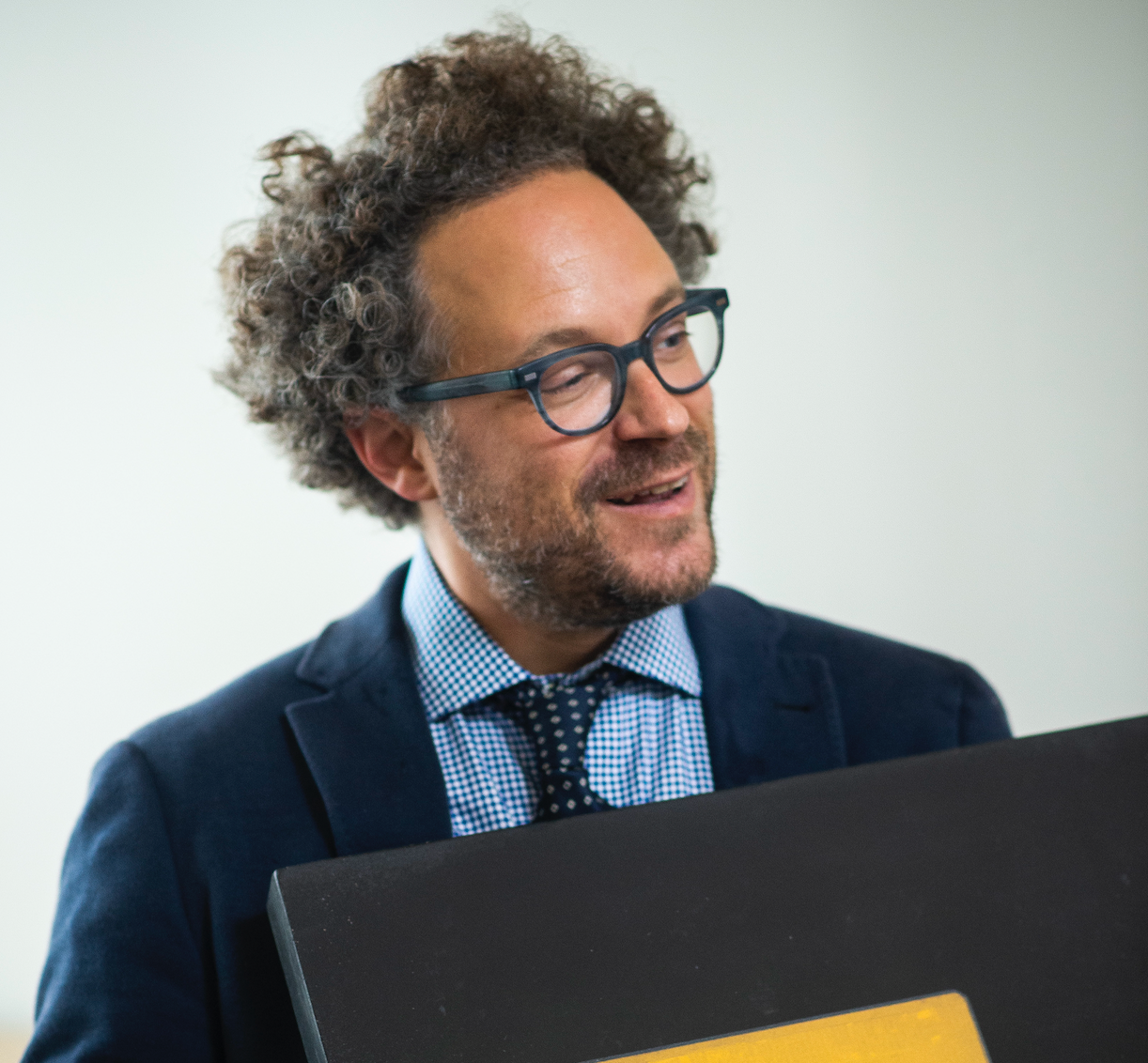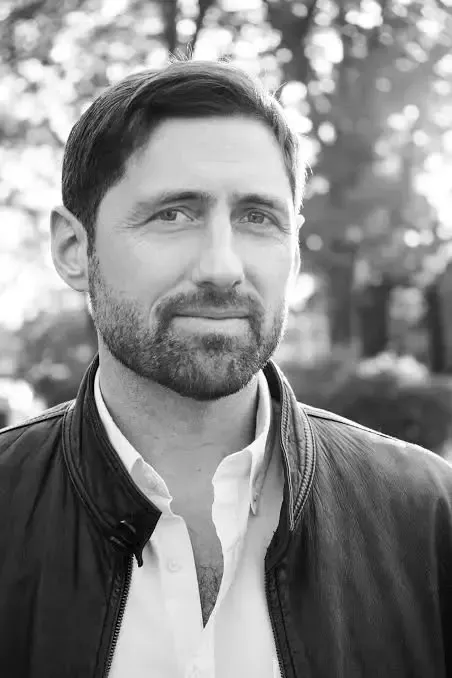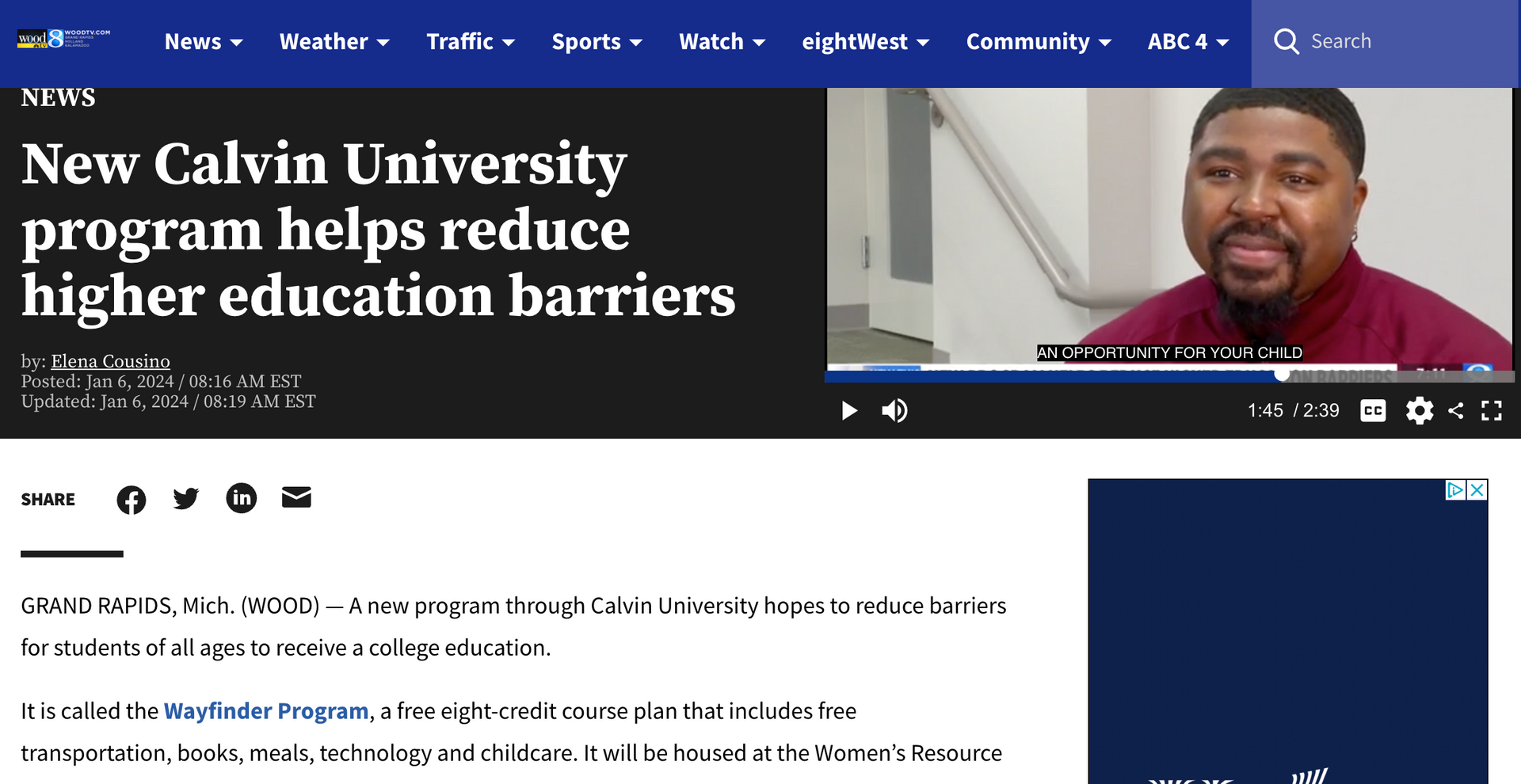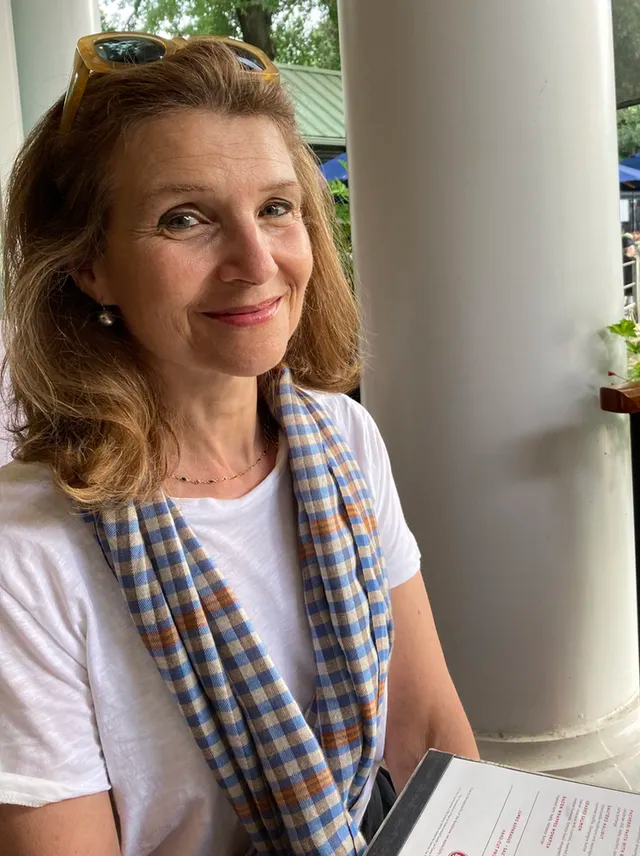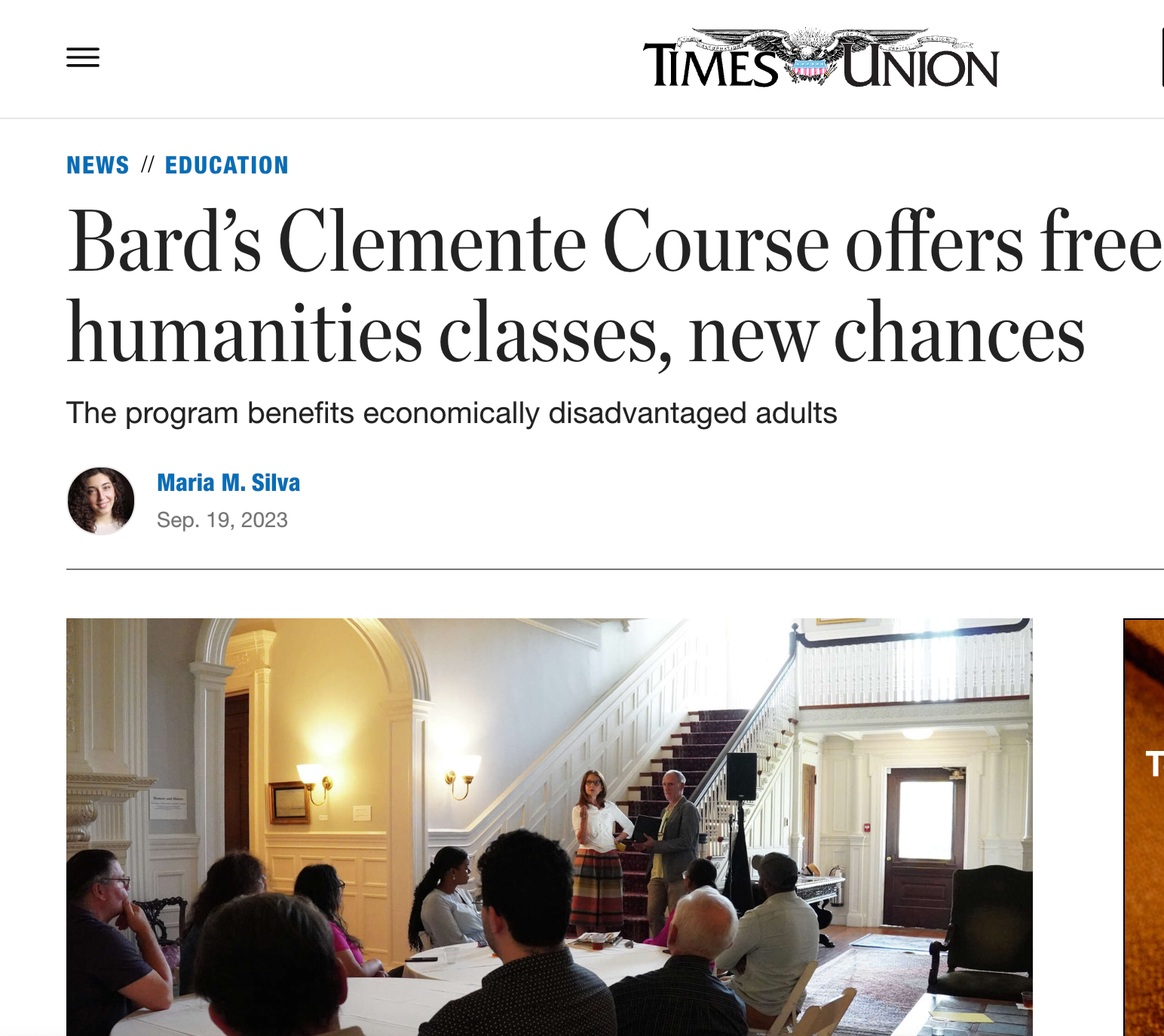One Person Protests: Exploring Social Movements Through the Humanities
Rozzell Medina, who directs Portland's Clemente Course, Humanity in Perspective (HIP), shares a behind-the-scenes look at a class for program alumni offered last fall. The curriculum covered the history of social movements, weaving literature, art, and historical documents into a lively exploration. The final project asked students to consider what issues they are willing to stand up for, quite literally.
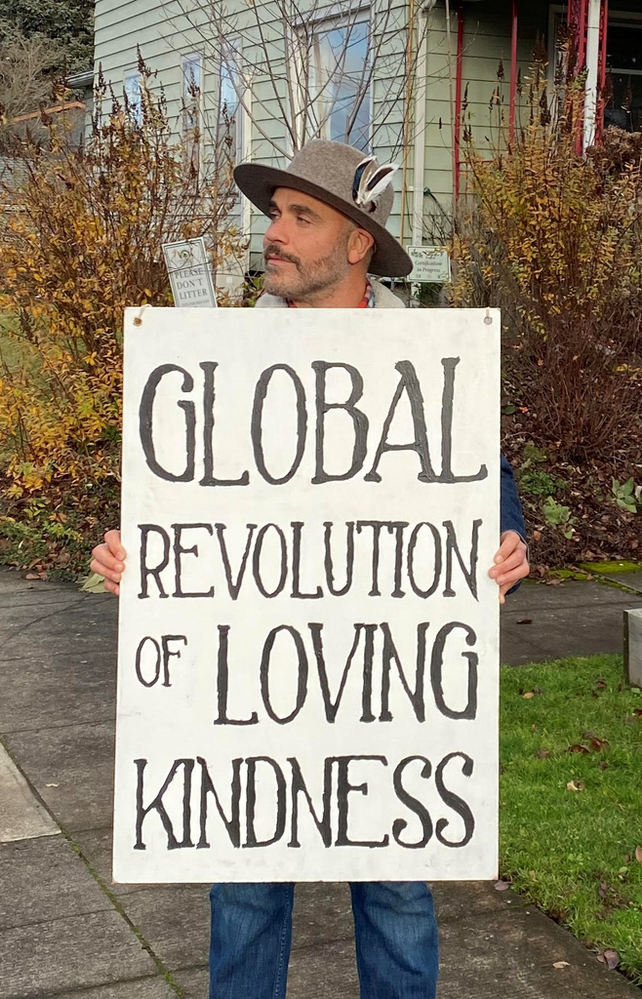
Fall 2020: In the thick of Covid-19, Oregon was also in the aftermath of historic fires and smoke exacerbated by human-made global warming, which affected the entire region. Additionally, while massive, ongoing protests that erupted after the murder of George Floyd were dwindling in Portland and other parts of the state, the movement was still very much on people’s minds and in their hearts.
In this tender and dynamic context, Oregon Humanities ’ Clemente Course, Humanity in Perspective (HIP), convened its fall bridge course: Exploring Social Movements through the Humanities.
For ten weeks, the HIP learning community studied the American Indian Movement (AIM), the Black Panthers, Black Lives Matter, the environmental movement, the disability justice movement, and more. We read parts of An Indigenous People’s History of the United States by Roxanne Dunbar-Ortiz, Black Against Empire by Joshua Bloom and Waldo E. Martin, and essays by John Trudell, Mia Mingus, and others. We also watched films like Agnes Varda’s excellent slice of life documentary The Black Panthers , Crip Camp , and Mossville: When Great Trees Fall.
Studying social movement is often bittersweet. Learning about the creative, spirited, and strategic ways that people have struggled, collaboratively, for survival, progress, rights, dignity, and liberation requires investigating the oppression that necessitates social movement.
We wanted to wrap up the course with a sense of lived experience and empowerment related to social movement, while also honoring the boundaries that some of us felt related to being around other people in public because of Covid-19. And so, for our final project, everyone in the class was invited to participate in the One Person Protest Project.
The parameters were fairly simple:
- Make a protest poster, featuring an original message, about anything, recognizable as an existing social movement, or not.
- Stand in public holding the sign (Things like what constituted an original message, “public,” etc. were left for each protestor to define for themselves.)
- Ask someone to take a picture of you holding your sign
- Write a pamphlet that could be given to passersby explaining more about the protest
- Write or record a reflection describing what it was like to do the one person protest. Were you nervous? Bored? Was it fun? Did people react? What did you think about while you were protesting?
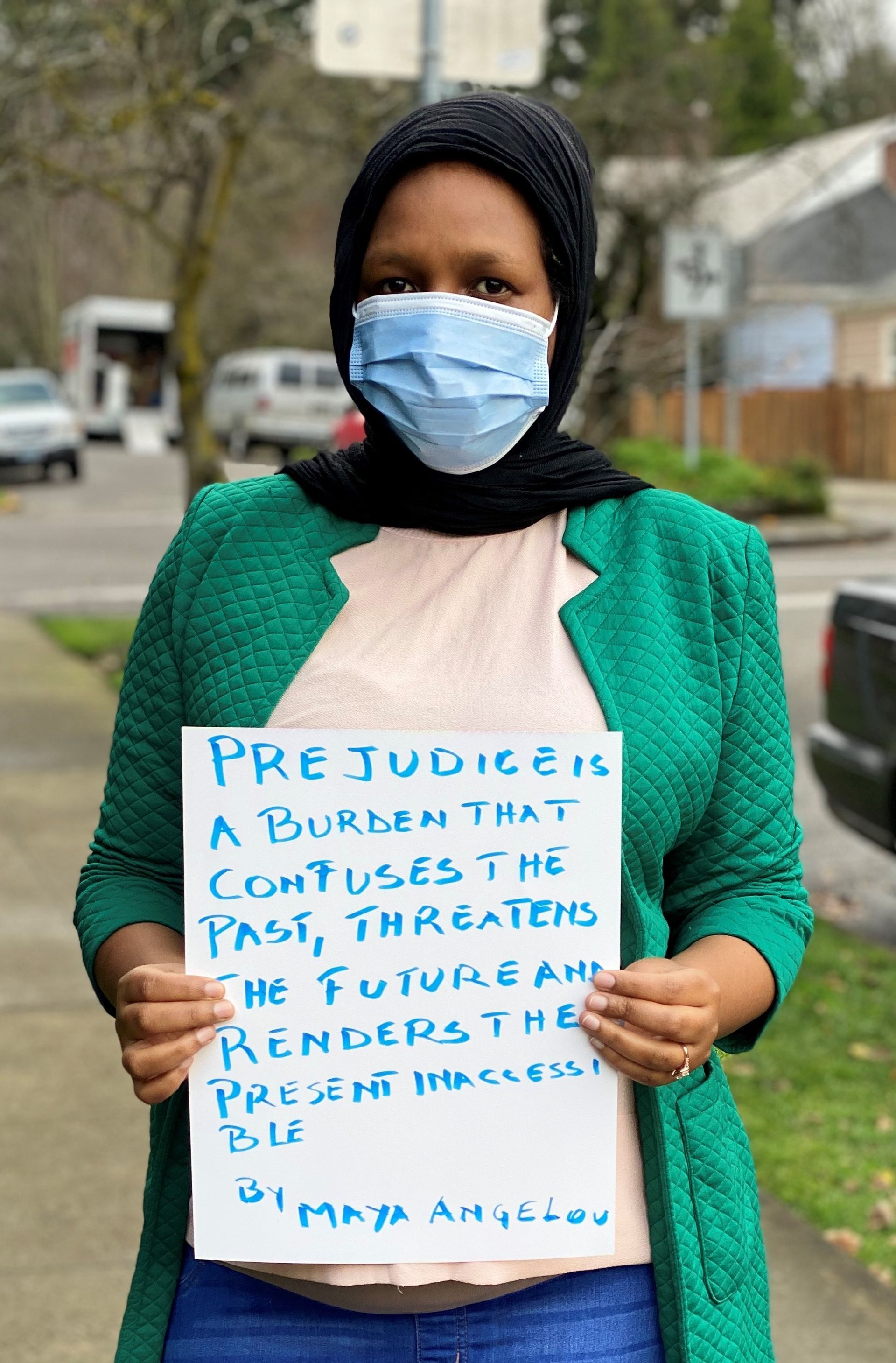
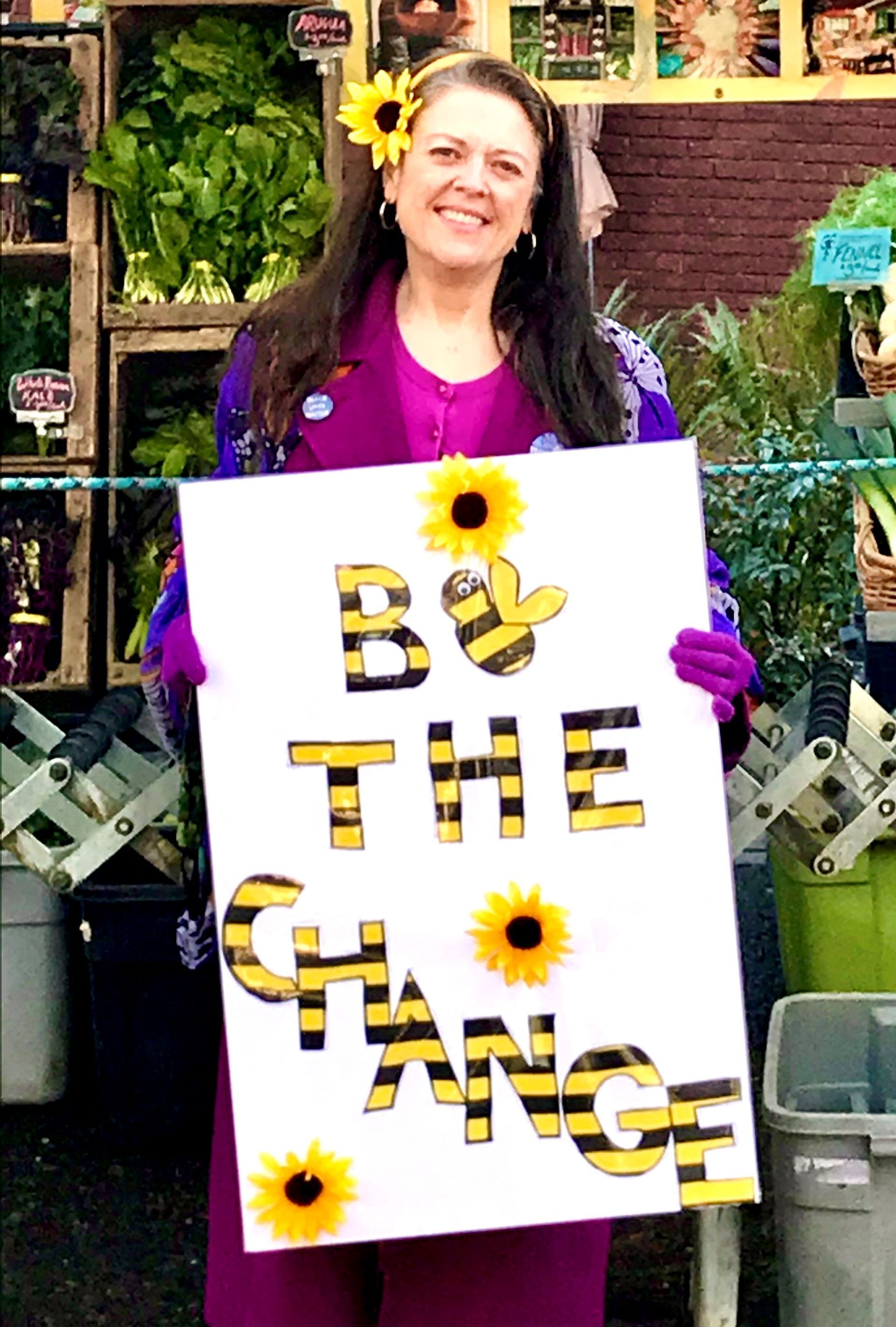
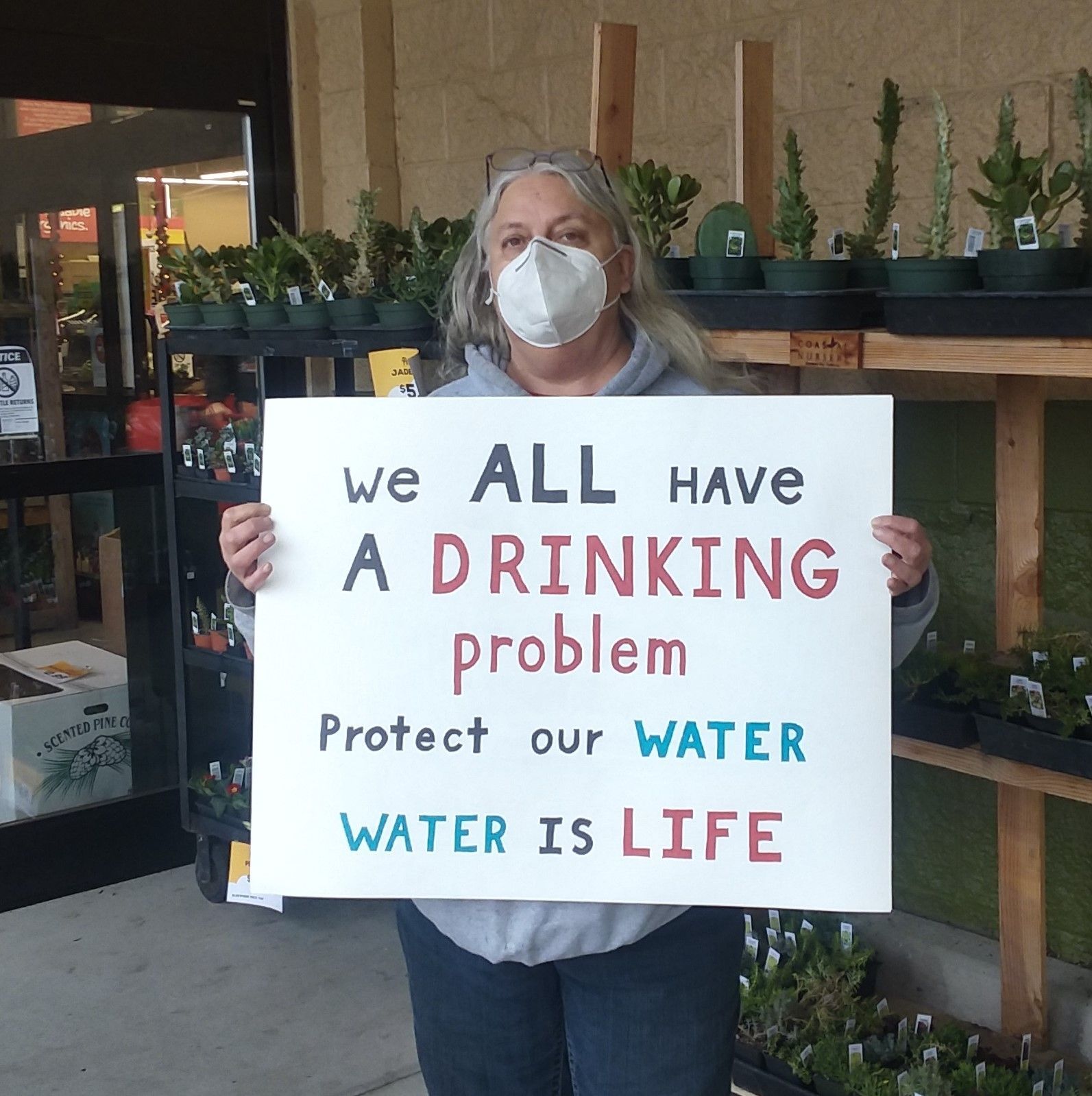
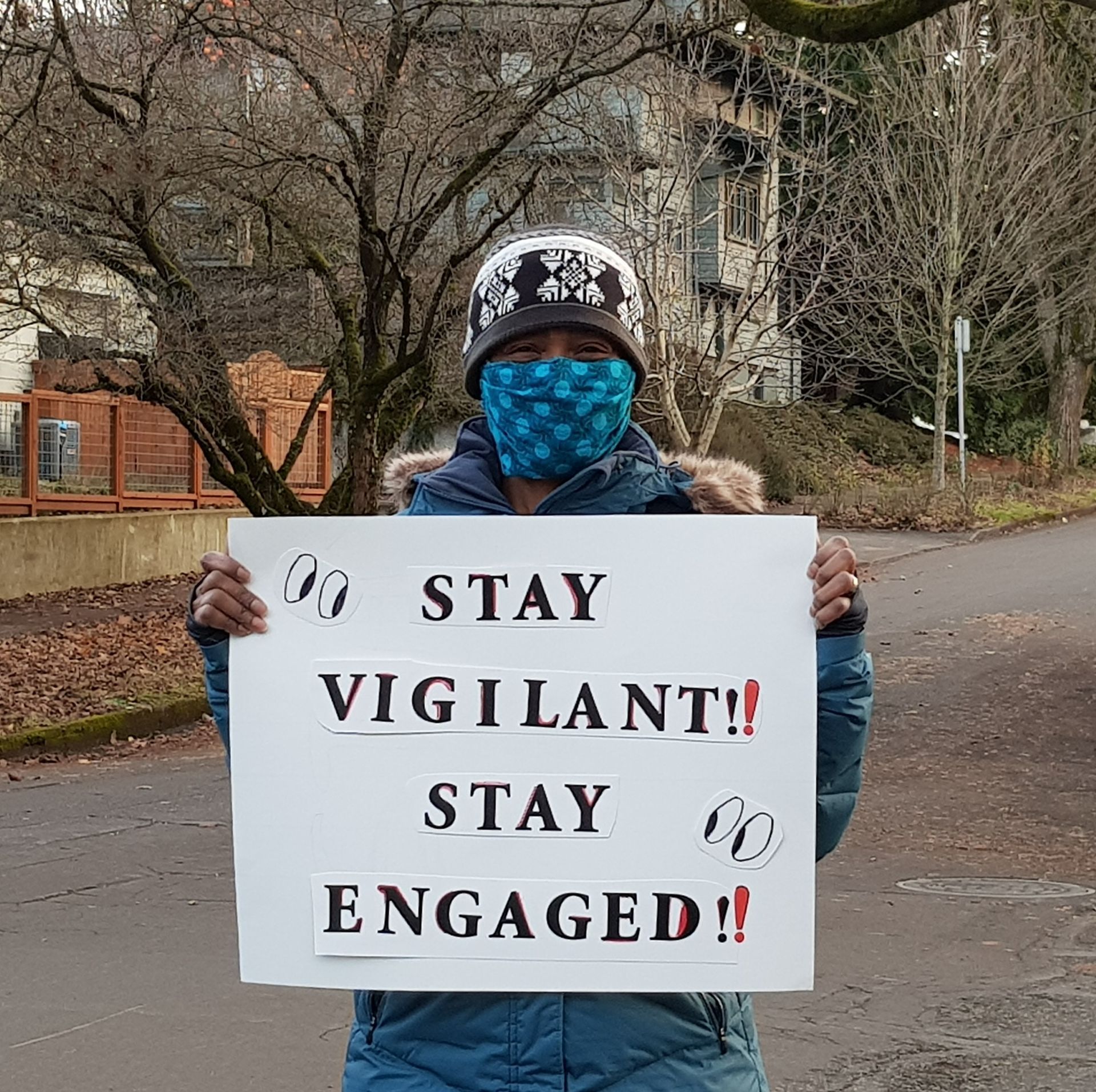
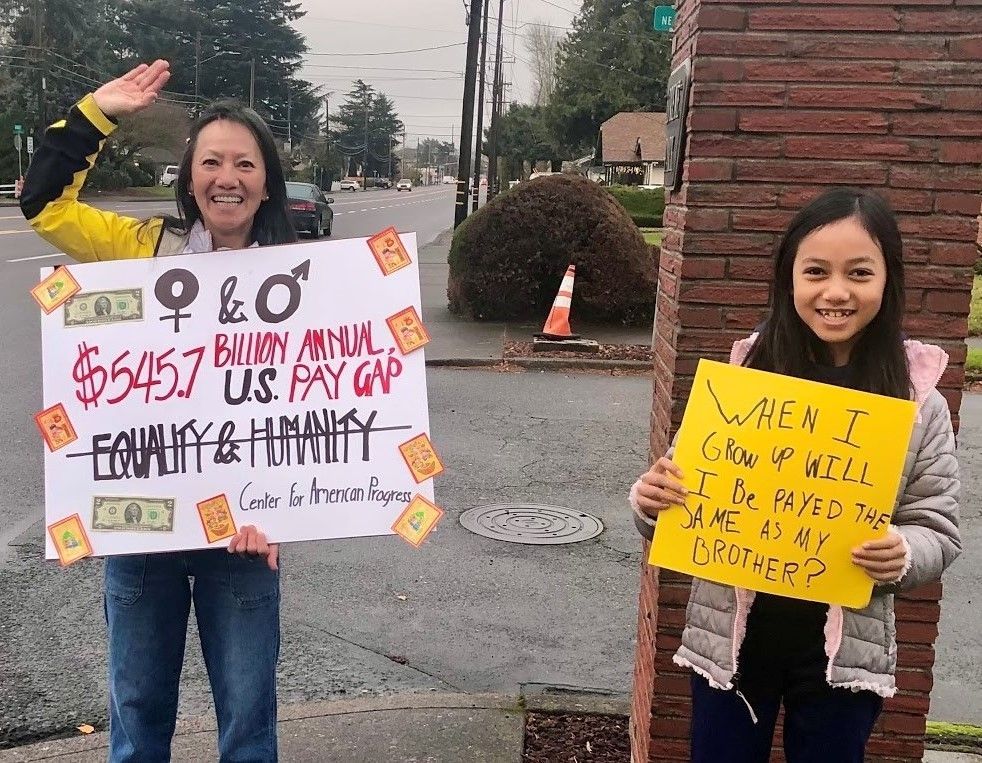
For one week in December, the HIP learning community took to parks, street corners, porch steps, and grocery store parking lots to demonstrate our care and concern for a variety of issues that felt urgent to us. Our causes included water, healing ourselves and the Earth, mental health care, the gender wage gap, and others. We also published a series containing everyone’s pamphlet for future distribution to the public.
In their reflections on participating, HIP students shared a variety of feelings and experiences. One student got her daughter involved, transforming theirs into a two person protest against the gender wage gap. Another, advocating for pollinator awareness and protection, dressed up to match her sign. This opened the door for ample conversations and engagement on her way to and from the farmer’s market, where she protested. One student, drawing attention to the fact that “WATER IS LIFE,” stood bravely by the entryway to her local grocery store with her sign, hoping to make particularly concrete the connection between water and daily choices.
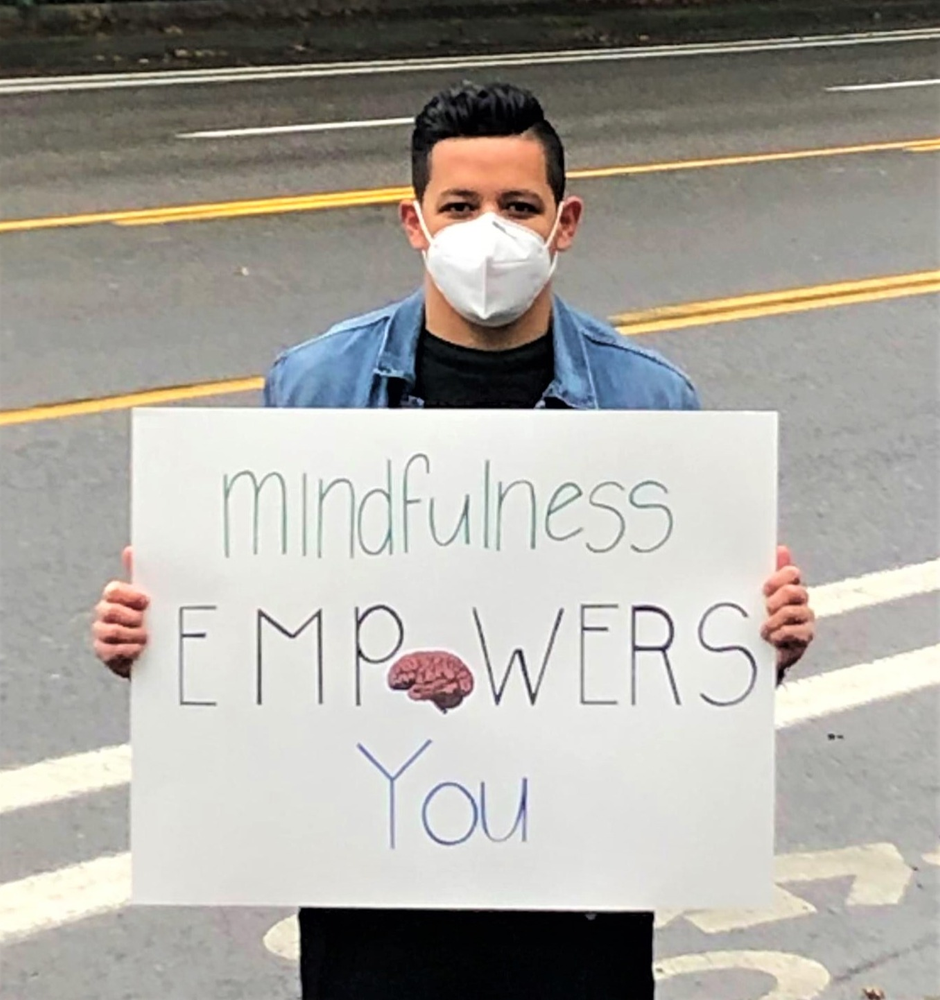
A lot of students commented on feeling a mixture of nervousness, excitement, and inspiration. As one student, Luis Medina, who brilliantly framed mindfulness as a social movement, put it: “This experience made me realize that I need to do more things that make me uncomfortable. Why should spreading a good message and doing the right thing make me feel that way initially? I think I'm just beginning to break out of my shell.”
